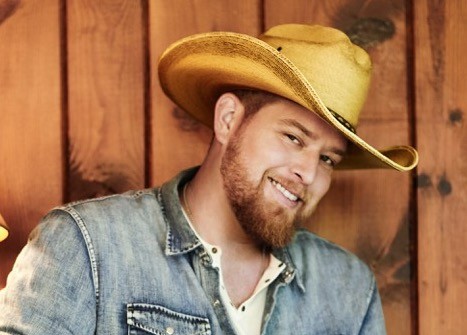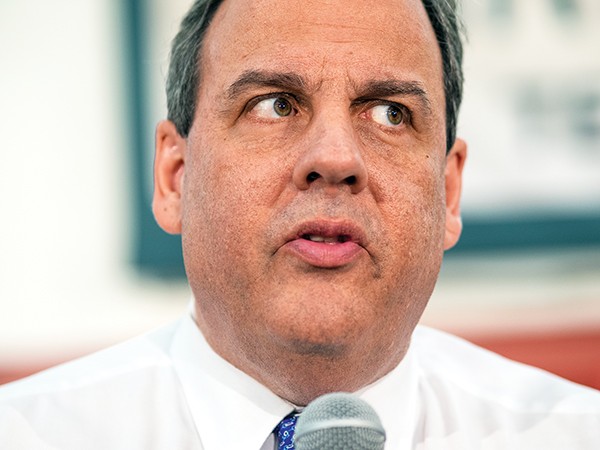 Kristin Barlowe
Kristin Barlowe
Lance Carpenter

The Memphis skyline was the initial inspiration for “Last Night in Memphis,” says singer-songwriter Lance Carpenter.
He was driving over the Harahan Bridge from his home in Ozark, Arkansas to Nashville one night and “looking out over the skyline of Memphis” when the song title came to mind, Carpenter says.
The lines, “Last night in Memphis I walked the streets of Beale. I saw the ghost of Elvis,” came to him, but those weren’t the right words. And they were too close to “Walking in Memphis.”
“I thought, ‘That’s not the way to write that song. I can never write it that way,’” Carpenter says. “I didn’t think much of it. I wrote it on my phone at a gas station. I thought, ‘I’ll live with it for a little while. Eventually, God will tell me what to do with that song.’”
That was in early 2012.
“I made several trips back and forth to Arkansas. Every time I would look at the skyline and try to find something unique to help me find out how to write the song.”
Something happened on his next trip. “God said, ‘Look left.’”
Carpenter saw St. Jude Children’s Research Hospital and the idea for the song hit him: “Tonight is some kid’s last night in Memphis because they’re cured.”
“I just thought, ‘That’s the way to write it. Now I have to figure out how to write it or who to write it with.”
Carpenter, who at that point didn’t have a publishing deal, had never set foot in St. Jude, but he knew the bands Alabama and Lonestar are big supporters of the hospital. Over the next year he met Randy Owen from Alabama and Richie McDonald with Lonestar, but he and McDonald clicked.
They first met at the Listening Room Cafe in Nashville. Carpenter told McDonald about the song. “He instantly was affected by the idea. He loved it.”
Carpenter didn’t even have music for the song at that point. They met at McDonald’s house a couple of weeks later. “We finished it in a day and a half and did a work tape of it.”
The song talks about a fictitious little girl named Annabelle, who is a patient at St. Jude. She walks down the hall saying goodbye to fellow patients because it’s her last night in Memphis. Listeners might think she’s dying, but they discover Annabelle actually is cured and she’s going home. “We wanted it to be happy. Not a sad song. Give hope to the kids.”
Carpenter originally hoped Lonestar would record the song because he didn’t think he could give it the “promotional status” the band could.
That was in 2016. “I was like, ‘I just don’t think this is the right time yet to do it.’ I didn’t have the following yet. I thought, ‘God is going to tell us when.’”
In 2018, Carpenter’s publicist asked him, “Hey, have you ever been to St. Jude and done a tour? We’re taking a group tour as a publishing company.”
After boarding the bus to take them from Nashville to St. Jude, Carpenter thought, “I feel like I’ve been on it before.”
He saw a pillow with singer Kelsea Ballerini’s name embroidered on it. It was her tour bus. Carpenter was co-writer with Ballerini on the song “Love Me You Like You Mean It.” He felt that was a good sign as he made his way to St. Jude for the first time.
He was impressed and touched during his St. Jude visit, “being with family and kids and walking the halls and seeing smiles and hope on their faces.”
Carpenter played his work tape of the song for Jackie Proffitt with St. Jude. She told him, “My God. You wrote this without ever being there?”
Proffitt told him St. Jude would like to use the song, Carpenter says.
Later that year, Carpenter, who was recording music for an EP, made a demo of the song to see how it sounds. He loved the way it turned out, so he asked McDonald to sing harmony on it.
McDonald agreed. “He said, ‘Man, this is incredible.’”
But Carpenter still didn’t feel it was time to release the song.
Shortly after, Carpenter recorded a duet with Krystal Keith, daughter of singer Toby Keith, on Carpenter’s song, “Anyone Else,” and he was signed to Toby’s label, “Show Dog.”
He released “Last Night in Memphis” November 22, 2019.
“The song definitely affects a lot of people,” Carpenter says. “They reach out and tell me their story. Their son was cured. In remission. I’ve kept in touch with families. Texted on the phone. They touch your heart when you meet someone who’s gone through something so tragic and have a big smile on their face. I admire what St. Jude does. Cancer sucks and I don’t think any kid should have their childhood taken away because of cancer.”
Carpenter’s slogan is “The more success I have, the more significant I can be in the lives of others.”
“This song will allow me to do that.”
McDonald, who is a St. Jude Partner in Hope, says he and Carpenter plan to go to St. Jude and perform the song live in 2020.
They’ve agreed to donate 50 percent of the net proceeds from the song to St. Jude.
“This is one of those songs that will continually give.”
 John Poltrack | Dreamstime
John Poltrack | Dreamstime